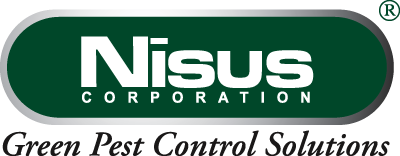Copper Naphthenate
Nisus Corporation has EPA approval to manufacture and sell QNAP concentrate. Wheeler enjoys a productive relationship with Nisus and looks forward to new offerings. QNAP is available for all Wheeler treated timber products. Please view the Nisus press release. Copper Naphthenate has proven to be a popular preservative which was reinforced by the feedback received when its future was in doubt. BenefitsOil-borne preservative provides added durability and waterproofing –QNAP is resistant to weathering from wet/dry cycles compared to water-borne preservatives. Semi-transparent color reveals natural wood grain –Shades of light to dark brown are typical. Wood may start with green tinge and then fade to brown depending on treating cycle and species of wood. Cleaner Handling –Steam cleaning after treatment greatly reduces surface oil residue. Safer to work with –QNAP is not a dermal toxin and has no photo-toxicity associated with some oil-borne preservatives. Broad use –Commonly treated wood species can be treated to level of retention required by specific application. Standard Duration of Load Factors used in design –There is no significant difference in resiliency compared to wood treated with other oil-borne preservatives. No corrosion concerns –Multiple studies demonstrate no excessive corrosion of hardware due to contact with preservatives. Efficacy –USDA Forest Service Forest Products Laboratory studies document long-term performance. AWPA Standards ensure peer review and qualify intended applications. Formosan Subterranean Termite protection –University of Hawaii study demonstrates effective protection. Situation should be considered a severe deterioration hazard and the high retention for Use Category 4C should be specified. General use pesticide –QNAP is the only oil-borne wood preservative classified as general use by the EPA under the Federal Insecticide, Fungicide and Rodenticide Act (FIFRA) because EPA concluded it has relatively low toxicity. Waste disposal –QNAP treated wood waste is neither a listed nor a characteristic hazardous waste according to the current EPA regulations under the Resources Conservation and Recovery Act (RCRA). It may be disposed of in landfills or burned in industrial or commercial incinerators or boilers in accordance with federal, state and local regulations. 100% domestic –The primary constituents of the treating solution are derived and/or manufactured from domestic sources by US owned companies. All timber is sourced from domestic mills.
Visit WWPI’s PreservedWood.org for more information on treated wood.
Please contact us with any questions. |

